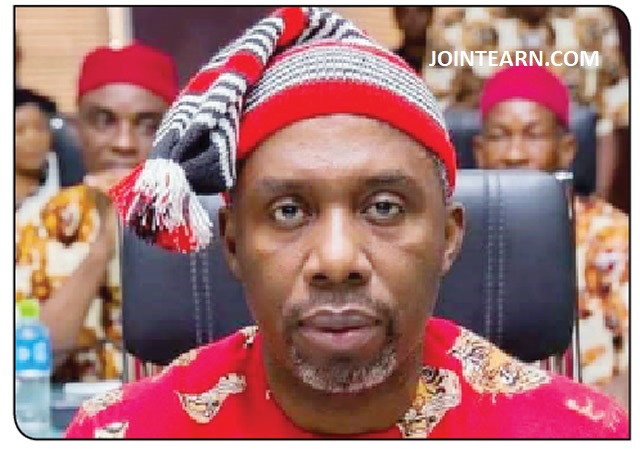The Human Rights Writers Association of Nigeria (HURIWA) has petitioned the National Assembly to introduce legislation addressing what it calls the “commercialization of law enforcement” in Nigeria. This call for reform was made during a press conference led by HURIWA’s National Coordinator, Comrade Emmanuel Onwubiko, held in Abuja.
HURIWA expressed deep concerns about the pervasive issue of police extortion, presenting cases that highlight the urgent need for legislative intervention. The association detailed the experiences of two individuals who faced demands for bribes while attempting to seek justice, underscoring a pattern of exploitation that they argue has become commonplace within the system.
One of the cases HURIWA emphasized involved a U.S. Army veteran, Mr. Bonaventure Ezekwenna, whose ordeal exemplifies the alleged systemic corruption within the Nigerian Police Force, specifically at the Force Criminal Investigation Department (FCID) in Abuja. According to HURIWA, Ezekwenna’s quest for justice began after he reported the activities of a rogue police unit in Anambra State. Since then, he has allegedly faced extortion from senior officers at FCID Abuja, who, over a span of three years, reportedly demanded bribes in exchange for progress on his case but have made little to no meaningful efforts to address his concerns. Ezekwenna, fearing for his safety, ultimately returned to the United States after enduring repeated threats.
Reports indicate that the U.S. veteran filed multiple petitions to key Nigerian authorities, including the Inspector General of Police (IGP) and the Attorney General of the Federation (AGF). According to HURIWA, Ezekwenna’s story is not an isolated incident but rather a reflection of a broader issue that affects countless citizens who seek assistance from law enforcement.
“This type of alleged exploitation, especially by senior officers responsible for upholding the law, points to a profound decay within the institution,” stated Onwubiko. He urged the National Assembly to act swiftly by enacting laws that not only prohibit such corrupt practices but also impose stringent penalties on officers caught extorting individuals seeking justice.
The association further called for the House of Representatives and Senate’s public complaints committees to hold open hearings on these troubling developments to ensure transparency and accountability.
Onwubiko highlighted another incident involving a journalist from The Guardian, who reportedly faced extortion after his car was stolen. When the journalist approached the police for assistance, officers allegedly demanded a N500,000 fee to initiate the search for the vehicle. HURIWA noted that such practices are widespread, with some police commands reportedly setting unofficial “standard charges” for helping crime victims. This particular case has sparked public outrage, with widespread media coverage exposing the lack of accountability within Nigerian law enforcement.
“This is not how crime prevention should function,” Onwubiko asserted. “If law enforcement officers prioritize financial gain over their duty to protect citizens, they not only fail the public but also perpetuate a culture of impunity and insecurity.” HURIWA urged the National Assembly to decisively address the growing trend of police commercialization, which it believes has gone unchecked for years.
HURIWA argued that the root of the problem lies in a lack of transparency and accountability within the police force, especially in the management of funds. Despite budget increases from N15 billion in 2015 to N400 billion in 2023, the group claims that these funds have not led to substantial improvements. Many police stations remain in poor condition, and essential law enforcement training facilities are underfunded and neglected.
In addition, HURIWA noted that the conditions within police detention centers are so inadequate that detainees face health risks due to unsanitary environments. Instead of fulfilling their duty, officers are allegedly more focused on extorting crime victims.
The human rights group called for immediate action by the National Assembly to pass legislation that would prioritize ethical standards and operational integrity within law enforcement agencies, emphasizing the critical need for a transparent, accountable system to restore public trust in the Nigerian police.












